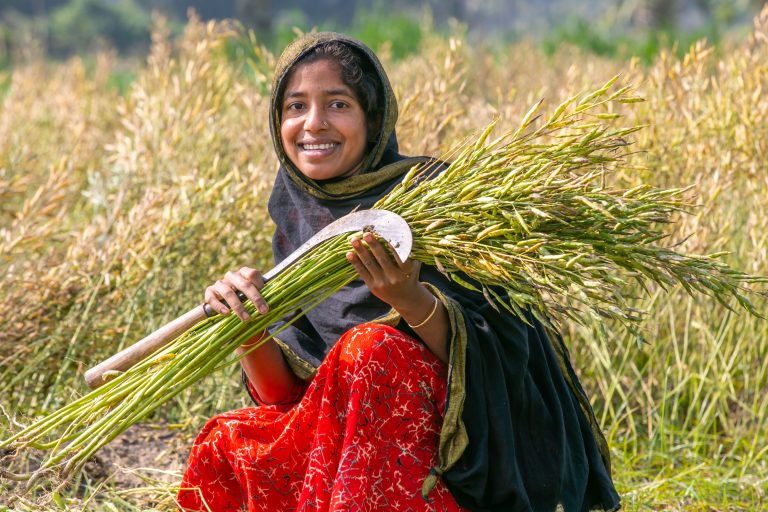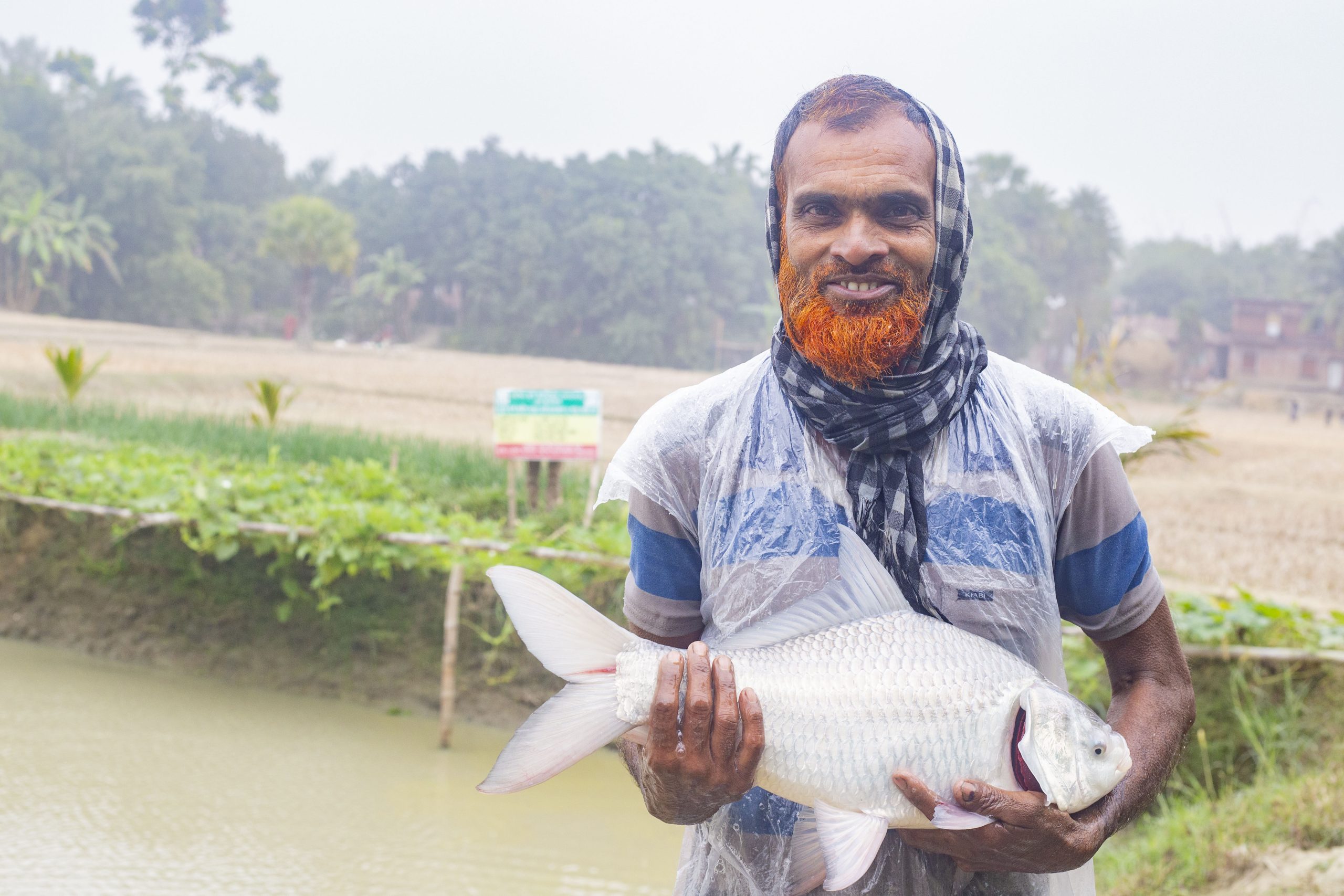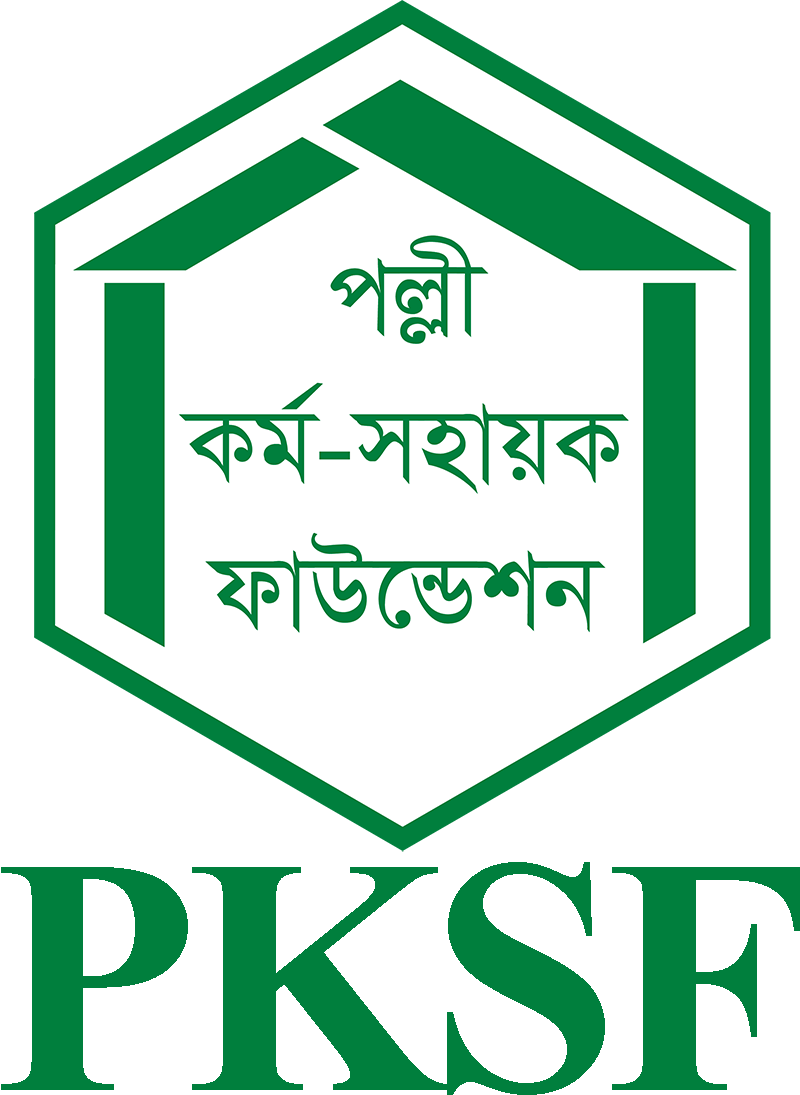Food, nutrition and health security are areas interlinked with any initiative aimed at comprehensive development, in particular of the poor. Food security, as defined by the United Nations’ Committee on World Food Security, denotes that all people, at all times, should have physical, social and economic access to sufficient, safe, and nutritious food that meets their food preferences and dietary needs for an active and healthy life. The geographical and social characteristics of Bangladesh, as a small country of South Asia with a large population and continuous threats from the negative impacts of climate change, is more likely to have an inverse association with food security at large. Experts suggest that an integrated and holistic approach to development is imperative to address the multiple aspects of food security. PKSF’s interventions on food, nutrition and health security of the poor people it serves are also connected with promoting inclusive finance, facilitating appropriate training, providing locally adaptable technologies, linking with public services and existing market platforms, and provisioning risk mitigating measures.

Integrating new knowledge and skills related to food production and processing is essential to adapt to new situations, increase productivity and ensure sustainability. The system of food production and processing is evolving very rapidly in the present world that often exposes the marginal farmers to difficulties in updating themselves with new technologies. PKSF provides training on locally adaptable technologies and hands-on techniques at the local level, sustainability of which is particularly important for the farmers. PKSF promotes technologies that correspond to the SDGs and are economically profitable, socially just and environmentally sustainable. PKSF’s Integrated Agriculture Unit plays a leading role in introducing modern farm technologies for higher productivity and thus food security.
Some PKSF activities are related to help create resilient livelihoods through direct interventions. In some instances, the poor are capable of purchasing some services only if they know the correct and important information and understand the process to strengthen their livelihoods against the threats of any probable disaster. The social mobilization and knowledge dissemination activities of PKSF help them access to know the appropriate technologies that contribute to nutrition and food security.
Hazard-specific information based on the results of area-specific vulnerability analysis and standard practices (e.g., building codes and disaster preparedness info) are provided to improve the vulnerability awareness by PKSF’s Environment and Climate Change Unit. These interventions vary from sector to sector (e.g., crop, livestock, fisheries) and also on the basis of the nature of disaster (e.g., cyclone, floods and salinity).

Awareness raising and provisioning technologies are not always sufficient to face different hazards. To cushion various shocks, low-income households feel constrained to borrow from informal sources, withdraw their savings, or sell assets. However, the coverage of such mechanisms is insufficient and unreliable. Moreover, the vulnerability of the poor is exacerbated each time they incur a loss, creating a vicious cycle that precludes lasting improvements in human and economic welfare. To safeguard these perils, PKSF has introduced viable risk mitigation measures for the poor, allowing them financial benefits to cover the losses. With funding from the Housing and WASH loans are also provided to improve the living conditions of the poor.
Related Projects:
